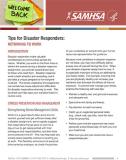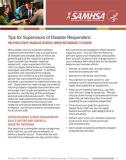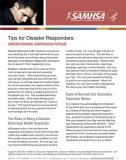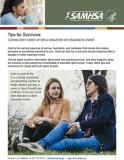
This fact sheet offers tips to help disaster response workers transition back to routine work. It provides information on managing stress, and how to overcome other difficulties, such as fatigue and a lack of control over emotions.
Units per Product
Download
Returning to Work
File Type: PDF
File Size: 713 KB







